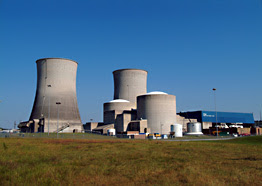Roger Hannah
Senior Public Affairs Officer
Region II
The NRC Region II office issued a “chilling effect”
letter to the Tennessee Valley Authority’s
Watts Bar nuclear plant this week, but what exactly does that mean?
The
“chilling” has nothing to do with weather, but rather refers to a
workplace environment where employees may be hesitant to raise safety
concerns for fear of retaliation or because previously raised concerns
were not adequately addressed.

In
the Watts Bar case and several others before it, the NRC identified
situations where some employees told the NRC they might be reluctant to
talk to their supervisors, managers or even the NRC about safety issues
because they were afraid of potential effects on their jobs. At Watts
Bar, these concerns arose in the operations department, but the NRC
takes those concerns very seriously whether they are isolated or more
widespread.
When
the NRC issues a “chilling effect” letter to a nuclear plant or any
other licensed facility, it is designed to ensure that those
organizations are taking appropriate actions to foster a workplace
environment that encourages workers at all levels to raise safety
concerns without the fear of retaliation and management to promptly and
effectively address the concerns.
The
NRC met with TVA officials March 22 to discuss the work environment
concerns and the letter issued the following day simply puts into
writing the expectations that the NRC has for TVA to address the
concerns at the Watts Bar plant.
TVA
officials are being asked to provide a plan that describes how work
environment issues at the Watts Bar plant will be addressed and then
attend another public meeting to discuss both that plan and how the NRC
will monitor and inspect any corrective actions.
The
NRC is confident that most workers at the Watts Bar plant and
throughout the nuclear industry feel safe in raising safety concerns
within their own organizations or directly to the NRC. That ability is
an important supplement to the NRC inspection program in ensuring the
safety of the facilities the agency regulates.
Any
attempt to influence that ability will not be tolerated by the NRC and
there are other similar letters in the past showing just how uncool the
NRC finds any workplace chilling effect.
No comments:
Post a Comment